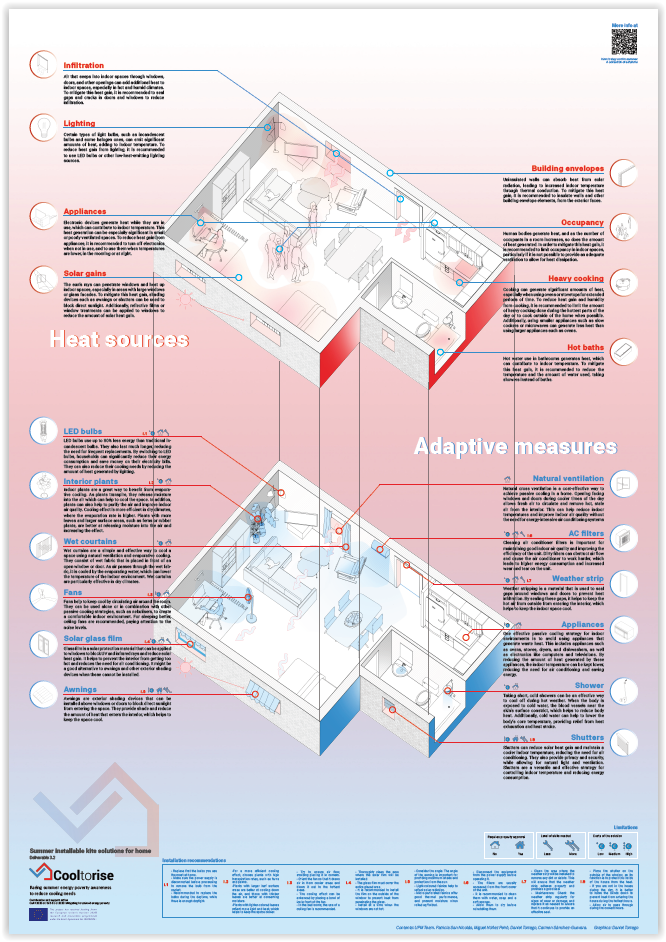Guest article by Georgi Simeonov from CSEG
Energy poverty has traditionally been defined by wintertime heating, but it is just as important during the summer months, and the devastating summer heat in 2023 proves this. About 19 % of households in the EU reported being too hot during the summer, and this share is constantly increasing in last decades. Nine out of the ten warmest years have occurred since 2005, with the last five years comprising the five hottest. As according to United Nations (UN), July 2023 was the hottest month ever recorded, leaving on second position the month of June 2019. Climate change is increasing both the severity and frequency of extreme hot weather and heat waves and in dense urban areas, these heatwave episodes will be combined with the Urban Heat Island (UHI) effect, worsening city centres temperatures which will negatively impact human health and wellbeing. Thus, cooling needs and overheating risk need to be incorporated into the energy poverty equation.
In this context, the EU-funded COOLTORISE project aims to establish a framework on summer energy poverty to define common solutions. The project is running for about two years already, and it introduces pilot measures to reduce the impact of heatwaves in low efficient households and delivers tools and information both to households and stakeholders to ensure families can afford to keep their homes adequately cool during heatwaves.
In the first phase of the project more than 350 volunteering summer energy poverty agents (SEPAs) have been trained by partner organizations on how to improve indoor and outdoor comfort during the hot season, and these SEPAs are already working intensively with vulnerable households from the 4 pilot countries – Spain, Italy, Greece, and Bulgaria. Workshops are currently being organized with citizens on the following topics:
- Raising summer energy culture promoting various measures which can be implemented by households indoor and outdoor in order to mitigate the effect of summer heats;
- Energy bills workshops which aim to raise awareness among citizens on components of their energy bills, different tariffs, readings, and indications in order to understand better the energy consumption at home;
- Indoor installable kits to raise attention on energy efficient devices which can impact positively our energy consumption;
- Outdoor interventions to mitigate the effect of heat waves and extremely hot weather in the neighbourhoods of participating cities;
- Women involvement and becoming active stakeholders in the process of fighting summer energy poverty;
- Organize summer heat warning alarms in the pilot cities to inform citizens on potential heat waves at their locations

Partners in the project are:
- Universidad Politécnica de Madrid, Lead Partner, Spain
- Associació Ecoserveis, Spain
- The Welfare and Development Association, Spain
- AISFOR SRL, Italy
- Comune Di Parma, Italy
- Association CSEG, Bulgaria
- Municipality of Peshtera, Bulgaria
- ViLabs, Greece
📅 Join POWER UP and Cooltorise in Modena on October 18, 2023: Book your seat for the workshop ‘Energy for the invisible citizen: in search for lasting renewable & fair solutions’, October 18th in-person from 9:30-12h in the lovely historic city centre of Modena. We will shed light on the diverse reasons and consequences of energy poverty. It’s part of Energy Cities’ Annual Conference from 18-20 October in Modena.
▶️ More about Cooltorise on Youtube (in Spanish language and auto-translation in English is possible)
